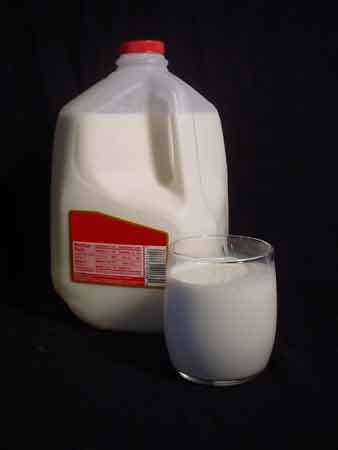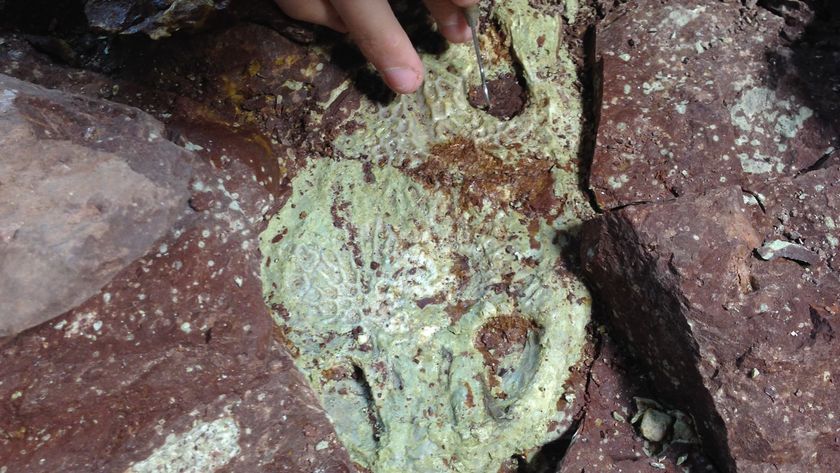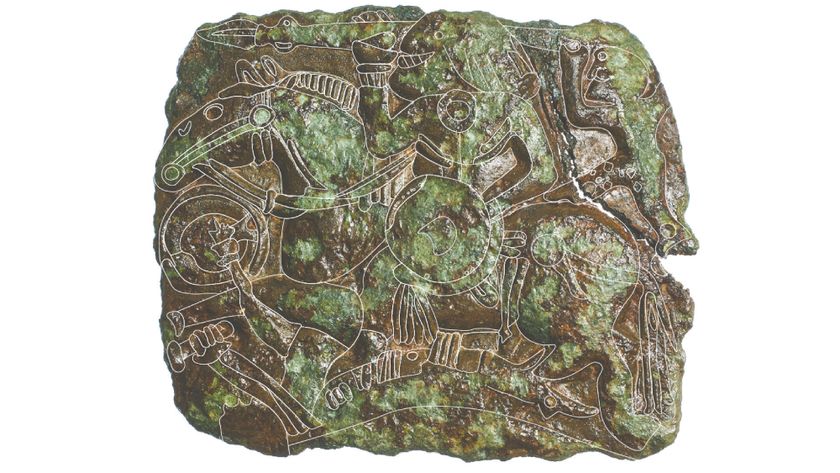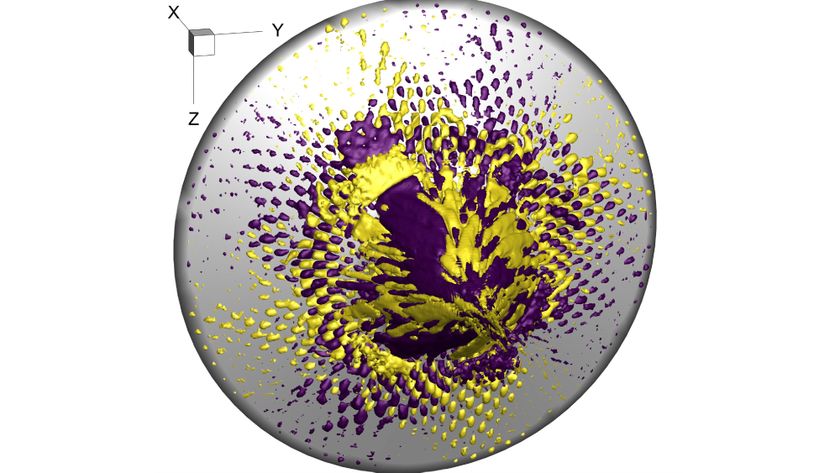Crying over Labeled Milk

Monsanto, the multinational biotechnology corporation and leading producer of genetically engineered seed with a near monopoly on many crops and annual revenue exceeding $7 billion, is worried that you are being misled.
For this reason, the company wants to ban shady dairy farmers like those rascally Amish and weirdo hippies from labeling their products free of artificial hormones.
Earlier this month, Monsanto complained to the Food and Drug Administration and Federal Trade Committee about the proliferation of labels with language such as "Our Farmers' Pledge: No Artificial Growth Hormones," as found on milk sold by Oakhurst Dairy in Portland, Maine.
Monsanto says this scares consumers into thinking there's something unhealthy about its human-made recombinant bovine growth hormone (rBGH), also known as recombinant bovine somatotropin (rBST) or by the Monsanto brand name, Posilac, now in about one-third of American dairy cows.
Probably safe for humans
Monsanto's rBGH, approved by the FDA in 1993, increases milk production by more than 10 percent. Monsanto takes somatotropin, a natural protein hormone, and mass-produces this using DNA-recombinant technology similar to how insulin medication is made.
Although the FDA deemed rBGH safe, nearly every government in the world as well as the Coded Alimentarius Commission, which sets international food standards, disagreed and placed a ban on rBGH—a ban that is only now slowly being lifted. There were economic concerns about rBGH's affect on milk production and price as well as health concerns.
Sign up for the Live Science daily newsletter now
Get the world’s most fascinating discoveries delivered straight to your inbox.
Numerous studies have since shown that rBGH is likely safe for human consumption. Early on, however, studies published in prominent journals found that milk from rBGH-treated cows had elevated levels of another bovine hormone called IGF-I. And unrelated research, such as a highly regarded study from Harvard published in 1998 involving 15,000 men, found a connection between IGF-I and prostate cancer.
What about the cow?
The cows don't seem to be faring as well as humans, though. A study published in the Canadian Journal of Veterinary Research in 2003, analyzing numerous other studies, found that rBGH-treated cows were 25 percent more likely to have an udder infection called mastitis, 40 percent more likely to fail to conceive, and 55 percent more likely to develop clinical signs of lameness.
Dairy cows are already bred for high milking output, and the artificial boost from rBGH takes a toll on their bodies. Monsanto Posilac's label in fact warns, "Cows injected with Posilac are at increased risk for clinical mastitis." Infections often are treated with antibiotics, raising concern about their overuse.
For animal welfare reasons alone, consumers have the right to know how their milk is produced.
Freedom of speech
Monsanto was aggressive about rBGH from the get-go and infamously stopped a Fox news affiliate in Florida in the early 1990s from broadcasting a report on it, which most consumers knew nothing about because of the lack of labeling. When the reporters, Jane Akre and Steve Wilson, refused to yield, Fox fired them.
Ultimately the plan backfired after the reporters successfully sued Fox under the Florida whistle-blower law and eventually won the 2001 International Goldman Environmental Prize.
In 1994 the FDA placed limits on wording rBGH foes could use, and some states prohibited labeling outright. Ben & Jerry's and three other companies needed to sue Illinois and Chicago for the right to say their products did not come from cows treated with rBGH.
Ben & Jerry's adds the FDA-preferred wording: "The FDA has said no significant difference has been shown and no test can now distinguish between milk from rBGH treated and untreated cows." Oakhurst Dairy and many other producers do not have this voluntary disclaimer, which Monsanto says violates the FDA's rules on misleading labels.
No such disclaimer is needed for organic labeling, stating the conventional foods are just as safe.
Truth in labeling
It is difficult to ascertain the truth about rBGH's safety because Monsanto itself doesn't do well with accurate labeling. On its website Monsanto posts a fact sheet reportedly from the FDA but actually written by a scientist from Cornell University. The dead giveaway is that FDA fact sheets don't use underlining and exclamation points—as in "YES!"—to answer such softball questions as "Are milk and meat from bST-supplemented cows safe?" The so-called fact sheet is comically slanted in industry's favor. Also note the lack of "r" in "bST," Monsanto's way of minimizing the artificialness of rBST.
Similarly, Monsanto's posting called "Questions And Answers About bST From The United States Food And Drug Administration," with language not typical of an FDA factsheet, doesn't seem to appear on any FDA website.
Proposed FDA rulings include not telling consumers when food is irradiated or derived from clones . Monsanto goes the extra step to limit what the other guy can say as well.
Christopher Wanjek is the author of the books “Bad Medicine ” and “Food At Work.” Got a question about Bad Medicine? Email Wanjek . If it’s really bad, he just might answer it in a future column. Bad Medicine appears each Tuesday on LIveScience. �

Christopher Wanjek is a Live Science contributor and a health and science writer. He is the author of three science books: Spacefarers (2020), Food at Work (2005) and Bad Medicine (2003). His "Food at Work" book and project, concerning workers' health, safety and productivity, was commissioned by the U.N.'s International Labor Organization. For Live Science, Christopher covers public health, nutrition and biology, and he has written extensively for The Washington Post and Sky & Telescope among others, as well as for the NASA Goddard Space Flight Center, where he was a senior writer. Christopher holds a Master of Health degree from Harvard School of Public Health and a degree in journalism from Temple University.










